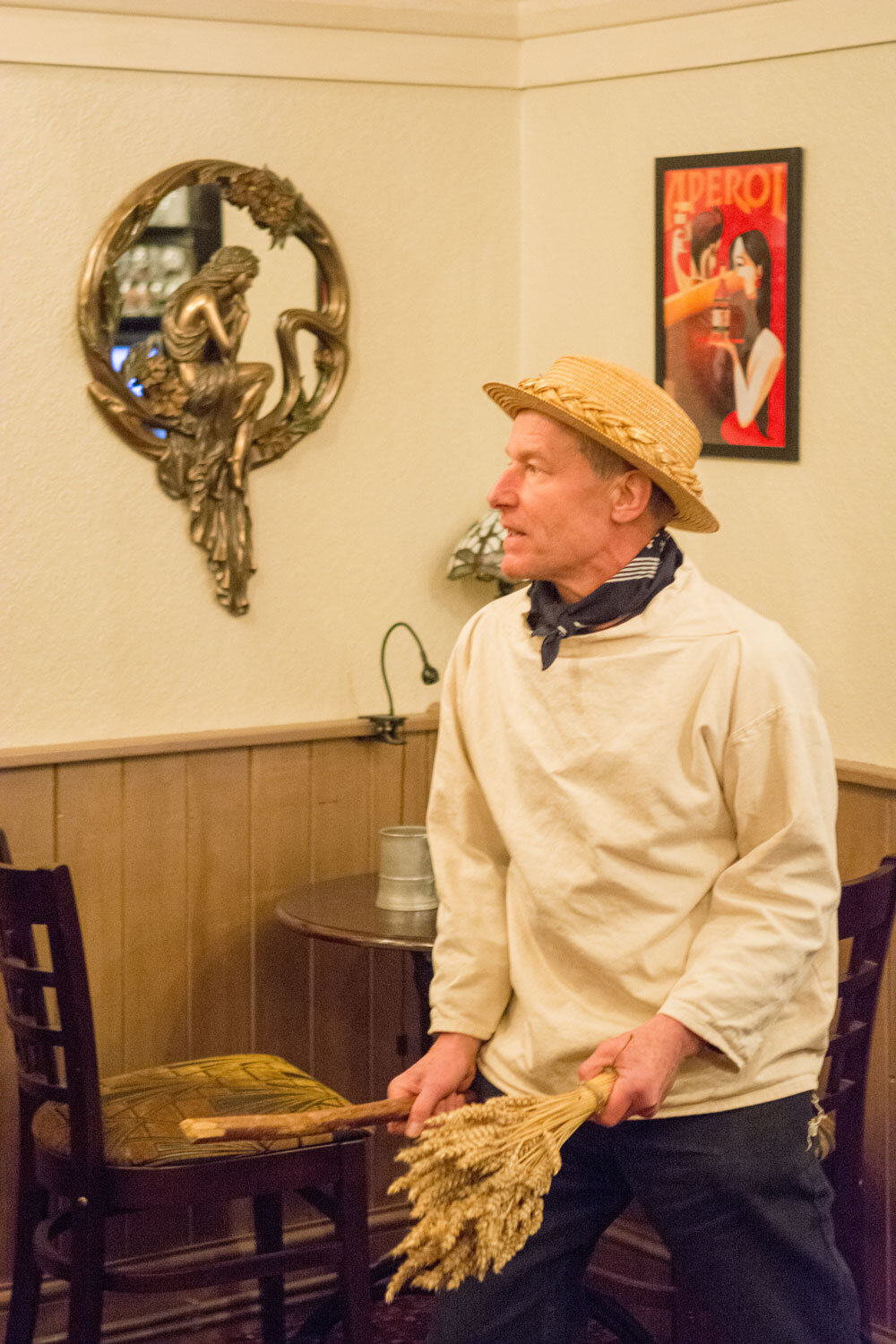The Plough Play
"This here mumming be more like Parson's work"
An Oxfordshire Mummer, 1932
The Plough Play is the oldest known form of the English folk dramas commonly known as Mummers’ Plays.
It is found in villages across Lincolnshire, Nottinghamshire and Derbyshire. Intriguingly, its text is almost the same, word for word, wherever it is performed.
Traditionally the play was presented on Plough Monday (the start of the Agricultural Year). On this day local plough boys would pull their ploughs around the village, performing in the kitchens of the larger houses and collecting money from their audiences.
The play represents the same "death and resurrection" struggle found in many Winter rituals from the earliest times. Although the dialogue is obscure, the story is very simple. A Recruiting Sergeant is killed by King George and brought back to life by a Doctor, who uses a collection of mumbo-jumbo and nonsense words to effect his cure.
The particular play performed by Bedford Morris Men comes from Branston, a Leicestershire village just south of Belvoir Castle and was one of two, collected in that district by David Welti, a former squire of Bedford Morris and the Morris Ring.
In Bedfordshire the historical records show that Morris Men appeared in Stevington on Plough Monday during the 19th Century, part of a local celebration that was still remembered in a book published in 1994:
“At Stevington on the first Monday in January, Plough Monday was always celebrated. After finishing the winter ploughing the boys would black their faces and go round the village rattling a tin and singing money for their beer. We children joined in, dressing in rags in black in our faces and we knocked on doors asking, “Tink boy, ploughboy gi’s penny ha’penny” (or in other words, “Think of the poor ploughboy give us a penny ha’penny”)
From Bedfordshire, Within Living Memory
Maybe these appearances once included a performance of a Plough Play like the one we still act out today.











